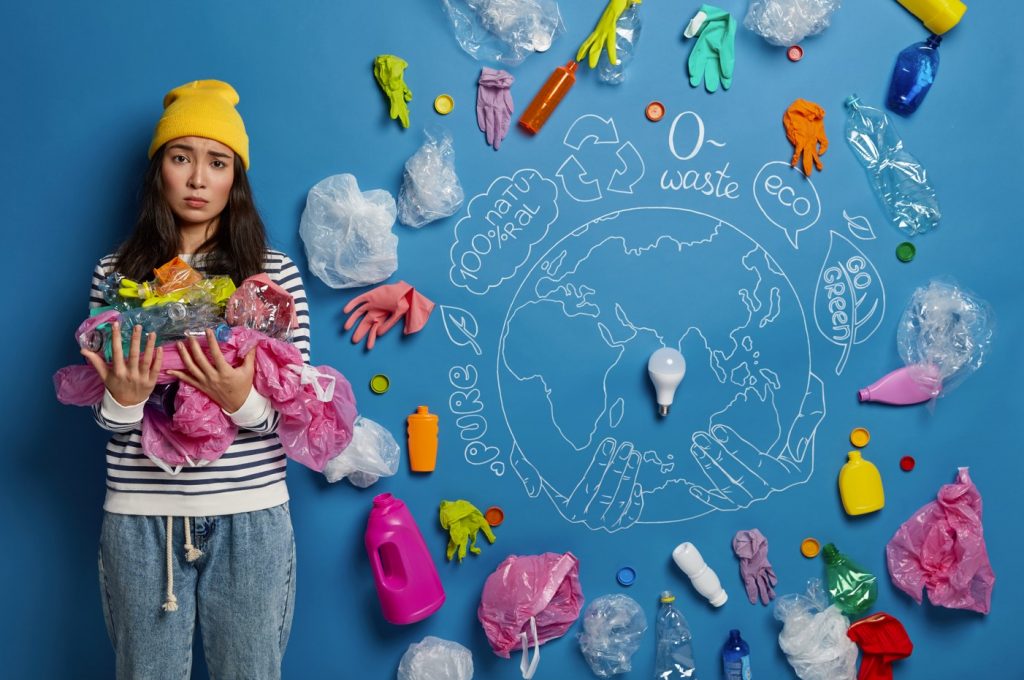Are you feeling overwhelmed by the pressure to make more eco-friendly choices but unsure where to begin? With sustainability becoming a buzzword, it’s easy to get caught up in the hype of “green” products. But what if the most impactful step isn’t buying more, but buying less? Let’s rethink our routine by focusing on one simple yet powerful principle: reducing our consumption. Not only will it benefit the planet, but it’ll help you save money and make more mindful decisions.
The Problem with Modern Consumerism
We live in a world where consumerism dominates, and it’s taking a heavy toll on our environment. Think about your last online purchase—was it something you really needed, or just another item added to your growing collection? The truth is our daily habits are fueling environmental crises. According to a Statista report by Daniela Coppola (2022), packaging accounts for the largest share of greenhouse gas emissions in the e-commerce industry, contributing around 45 percent of total emissions. Additionally, package returns represent about one fourth of the total emissions.
While it’s encouraging to see more people demanding sustainable products, we need to be cautious about brands that might be engaging in greenwashing—where they exaggerate or fake their environmental efforts to boost sales. It’s up to us to sift through the noise and make informed choices that truly benefit the planet.

Why ‘Reduce’ Matters More Than Recycling
Most of us are familiar with the mantra: Reduce, Reuse, Recycle. But if we’re honest, recycling tends to grab all the attention. However, reducing consumption is the first and arguably the most important step toward a sustainable lifestyle. Before we hold brands accountable for their environmental impact, we need to examine our own consumption patterns.
For instance, how often do we really need to buy new furniture, gadgets, or clothes? Instead of constantly acquiring new things, consider making the most of what you already have. Upcycling, repurposing, or even rethinking whether you need a new item at all can reduce waste and environmental impact.
Buy Less, Think More
One strategy that works is to put items in my online shopping cart and leave them there for 3-5 days. When I come back, the initial urge to buy often fades. This simple step helps curb unnecessary purchases. To further cut down on impulse buys, make online shopping a bit less convenient by not saving your card details. Set a small monthly budget for online purchases to avoid overspending. Each time you consider buying something, ask yourself if it’s worth stretching your budget.
Think about repurposing items you already have instead of buying new. For example, my mom turns old clothes into new hand towels or makes blankets and bed drapes from them. Old cans and bottles can become vases or home decorations. Creative reuse not only helps the environment but also adds a personal touch to your home. If you need to buy something, consider thrift shopping or buying refurbished products. Secondhand items not only save money but also reduce the demand for new products, conserving resources. Supporting local businesses can also cut down on transportation emissions and often aligns with more sustainable practices. Local products also have a smaller carbon footprint.
Focus on ‘Reduce’
By being more mindful of these factors in our buying decisions, we can significantly reduce our carbon footprint and genuinely contribute to a more sustainable future. It might seem daunting to consider all these aspects before making a purchase, but it’s worth it. Plus, it can save you from impulsive buying habits that not only harm the environment but also drain your wallet.
Ultimately, sustainability starts with us. If we want to make a real impact, we need to go back to basics and focus on the first step: Reduce. It’s not just about recycling; it’s about consuming less in the first place. So, next time you feel the urge to buy something new, take a moment to think it through. Our planet—and your wallet—will thank you.
And now, we’d love to hear from you! How do you practice mindful consumption? Do you have any creative tips for reducing waste or recycling? Feel free to share your thoughts in the comments. If you enjoyed this post, let us know—and don’t forget to pass it along to others who might find it helpful too.
By Tu Tran, Msc International Business student
Featured image by freepik
Embedded image by wayhomestudio on freepik
 Sustainability
Sustainability Bethany Climpson
Bethany Climpson 1113
1113


